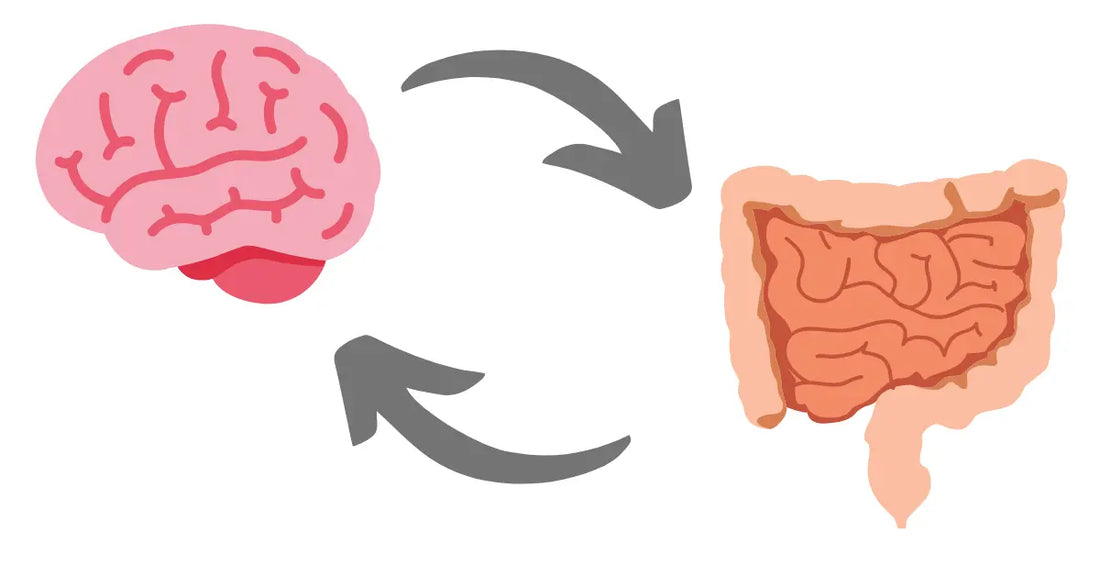Mental health awareness is a national and global concern that has increased in recent years following covid. Troubling statistics and national reported data include Black and Latinx children were about 14% less likely than White youth to receive treatment for their depression, approximately 50% to 75% of youth in the juvenile justice system meet the criteria for a mental health disorder, suicide was the second leading cause of death for Black or African Americans ages 15 to 24 in 2019, Black American adults are 20% more likely to experience serious mental health problems, depression in Black Americans is likely to be more disabling and persistent even though rates of depression are lower in Blacks than in Whites, psychiatric and behavioral problems among BIPOC youth often result in school punishment or incarceration, but rarely mental health care, and an overall mistrust of medical and mental institutions is rooted deeply inside the black community as a result of generations of racism, discrimination, and trauma (BIPOC Mental Health Fact Sheet | Resources to Recover, 2022). It is evident that prioritization of mental health and access to high quality mental health care has been a historic issue for Melanated Americans since the post-slavery era.
Moving forward, access to high quality holistic nutrition science education is important for Melanted Americans with regard to sustaining optimal health and the promotion of neurological health. Unfortunately, in most traditional medical schools students spend less than 20 hours on nutrition. Therefore, nutrition and other preventive medicine mechanisms are usually not discussed or discussed very broadly in a limited time span in these traditional settings. As a result, the prevalence of chronic disease has plagued Melanated communities throughout America due to structural and systemic racism and inequities. Many U.S. medical schools train students to treat their patients rather than heal their patients. This is aligned with an acute care model that is physician-focused and financially benefits big pharma, while a functional medicine approach based in root cause analysis and patient-centered care is what Melanated Americans need access to. In this model, Melanated Americans would receive care that truly assesses the underlying root cause of any health concerns or conditions including mental health dysfunction, and receive care that heals them and prevents future development of noncommunicable chronic diseases. The relationship between our gut microbiome, neurological health, and cognitive function is often overlooked. First, it is important to understand the gut-brain axis. The gut-brain axis is a complex communication network between the gut and the brain, and influences brain function through the gut microbiota. The gut microbiota can produce neurotransmitters, metabolites, and immune signals that directly affect the central nervous system, which impacts mood, cognition, and behavior. Additionally, a disruption in the gut microbiome is referred to as gut dysbiosis and contributes to the development of neurological disorders such as anxiety, depression, Parkinson’s disease, and Alzheimer’s disease due to inflammation and disrupted brain chemistry. Also, gut bacteria produce neurotransmitters like serotonin and GABA, which are important for mood regulation, and disruptions in the gut microbiota can affect sleep patterns negatively due to a disruption in circadian rhythm. Another mechanism that confirms the relationship between our gut microbiome and neurological health and brain function is the release of cytokines and neurotransmitters due to inflammation of the gastrointestinal tract. Elevated blood levels of cytokines TNF-a and MCP (monocyte chemoattractant protein) increase the permeability of the blood-brain barrier, enhancing the effects of rogue molecules from the permeable gut (Clapp et al., 2017). Their release influences brain function, leading to anxiety, depression, and memory loss (Clapp et al., 2017). Ultimately, nutrition plays a significant role in ensuring our gut microbiome maintains a state of homeostasis, which promotes optimal functioning of our neurological health and cognitive development. Consuming a wide variety of colorful whole foods are scientifically proven to enhance and contribute to a diverse gut microbiota consisting of beneficial gut bacteria that sustains healthy functioning of metabolic pathways throughout our entire body including our nervous system.
While an understanding of the gut-brain axis and access to high quality holistic nutrition care is important for Melanted Americans and our regulation of mental health, it is also important to understand how racism scientifically affects our gut microbiome and contributes to racial health disparities. Very few studies have integrated the gut microbiome into investigations of health inequities. Racism and discrimination can impact the gut-brain axis and lead to unhealthy behaviors and increased risk of health problems through brain activity, gut molecules, food choices, inflammation, obesity, mental health, diseases, and emotional arousal. People who experience high levels of discrimination have higher levels of gut molecules that play a role in brain-signaling pathways, experience gut-brain crosstalk changes that affect food choices and cravings, experience alterations in gut chemistry due to inflammation, and an overall increase in emotional arousal and limbic regions of the brain that are associated with the stress response of fight or flight. It is worth noting that two compounds related to glutamate are found at substantially higher levels in the guts of people who experience high levels of discrimination. Glutamate is a neurotransmitter that helps neurons communicate and high levels of discrimination are directly correlated with high levels of this chemical. As a result, high levels of these compounds have been associated with inflammation, obesity, and the brain’s response to food cues (Discrimination May Lead to Unhealthy Gut-Brain Changes, 2023). Lastly, due to structural racism, unethical public health policies, redlining, limited access to high quality healthcare and nutrition sources, and limited access to outdoor green spaces, the gut microbiome has been further affected in Melanated communities and has a direct correlation with the development of noncommunicable chronic diseases. High-fat, low-fiber diets are more geographically and economically accessible to low-SES and minoritized families. This leads to a reduction in gut microbiome diversity, which negatively alters gut microbiome function. Sixty percent of a healthy brain is fat, and DHA (Docosahexaenoic acid) comprises approximately forty percent of total fatty acids in the brain. Therefore, a low-fat diet leads to unfavorable gut and neurological health outcomes. Next, increased time spent indoors and reduced exposure to outdoor environmental microbes also reduces gut microbiome diversity (Amato et al., 2021). Lastly, less access to safe outdoor green spaces, various forms of sleep disruptions for shift workers, and high levels of stress all contribute negatively to an altered gut microbiome composition in Melanted communities affected by structural and systemic racism. As a result, these communities have an increased risk for health disparities including undernutrition, metabolic syndrome, asthma, COVID-19, and neurodevelopmental and mood disorders (Amato et al., 2021).
With regard to the need for high quality mental healthcare in Melanted communities, it is important to also consider the gut-brain axis and the gut microbiome’s relationship with our mental health. Furthermore, this relationship is primarily rooted in high quality holistic nutrition. Unfortunately, there is limited access and understanding of nutrition science, the role the gut-brain axis plays in mental health, and how structural and systemic racism impacts the gut-brain axis in Melanated communities. The call for systemic change continues, and the declaration of racism as a public health crisis by the CDC remains true unfortunately. Health is our true wealth, and Melanated men and women should not experience barriers to sustaining optimal health due to racism in 2025. We must continue to boldly address and dismantle systems that were historically created to exacerbate racial health inequities in Melanated communities nationally and globally. Lastly, health policy must consider the gut microbiome and gut-brain axis as an important pathway linking environmental factors to population health outcomes.
Additional Resources
The Gut-Brain Connection Fact Sheet
Social Determinants of Health Infographics
Adverse Childhood Experiences and Chronic Disease Development
The Human Gut Microbiota Infographic
References
BIPOC Mental Health Fact Sheet | Resources to Recover. (2022, February 17). Resources to Recover. https://www.rtor.org/bipoc-mental-health-equity-fact-sheet/?utm_source=google&utm_medium=cpc&utm_campaign=247031894&utm_content=136034655073&utm_term=poc%20mental%20health&gad_source=1&gclid=Cj0KCQjwveK4BhD4ARIsAKy6pMK8N3P2IlYO_-2IOYXB21FWK5CL7mK-VUTacqsry1yVuiSDULx9qVAaAqsdEALw_wcB
Clapp, M., Aurora, N., Herrera, L., Bhatia, M., Wilen, E., & Wakefield, S. (2017). Gut microbiota’s effect on mental health: The gut-brain axis. Clinics and Practice, 7(4). https://www.ncbi.nlm.nih.gov/pmc/articles/PMC5641835/
Discrimination may lead to unhealthy gut-brain changes. (2023, October 23). National Institutes of Health (NIH). https://www.nih.gov/news-events/nih-research-matters/discrimination-may-lead-unhealthy-gut-brain-changes
Amato, K. R., Arrieta, M.-C., Azad, M. B., Bailey, M. T., Broussard, J. L., Bruggeling, C. E., Claud, E. C., Costello, E. K., Davenport, E. R., Dutilh, B. E., Ewald, H. A. S., Ewald, P., Hanlon, E. C., Julion, W., Keshavarzian, A., Maurice, C. F., Miller, G. E., Preidis, G. A., Segurel, L., & Singer, B. (2021). The human gut microbiome and health inequities. Proceedings of the National Academy of Sciences, 118(25). https://doi.org/10.1073/pnas.2017947118

